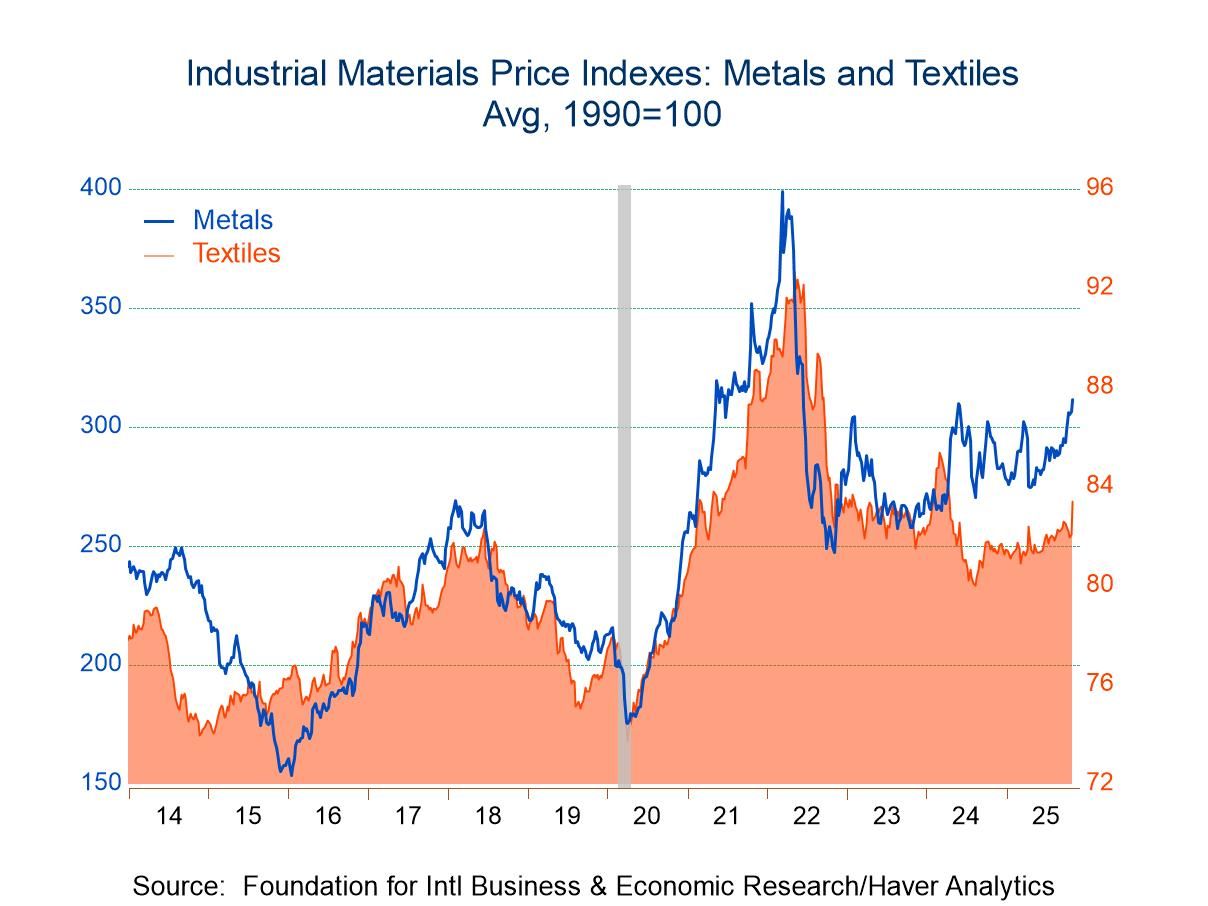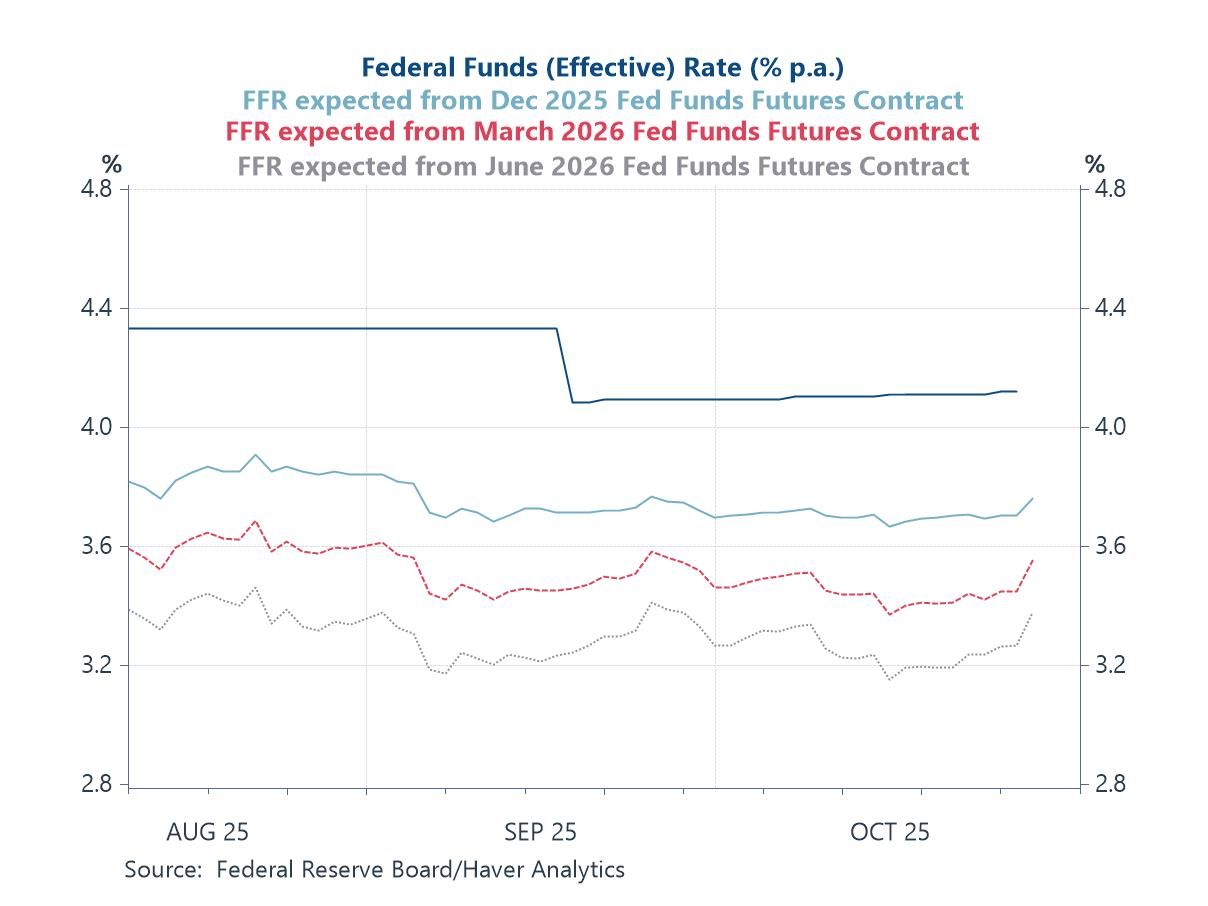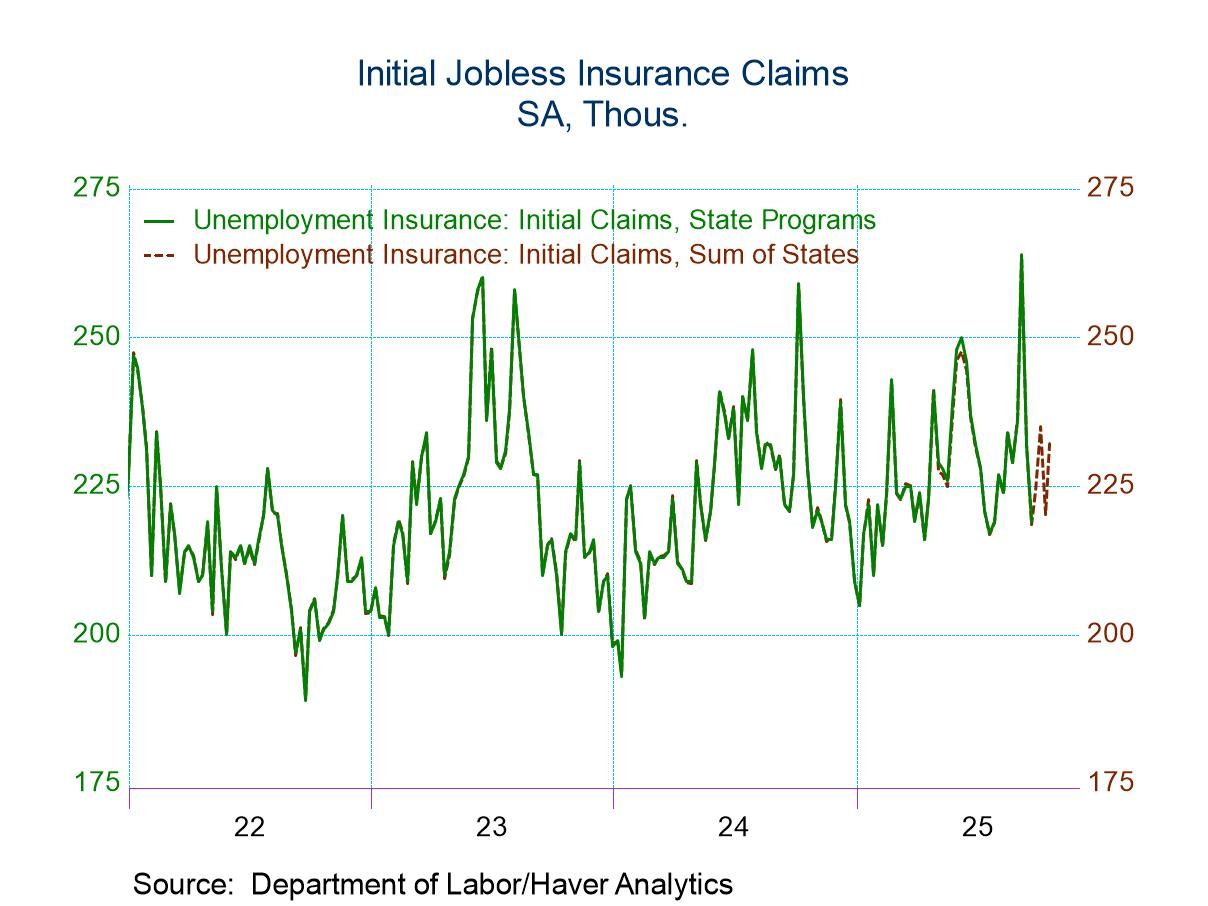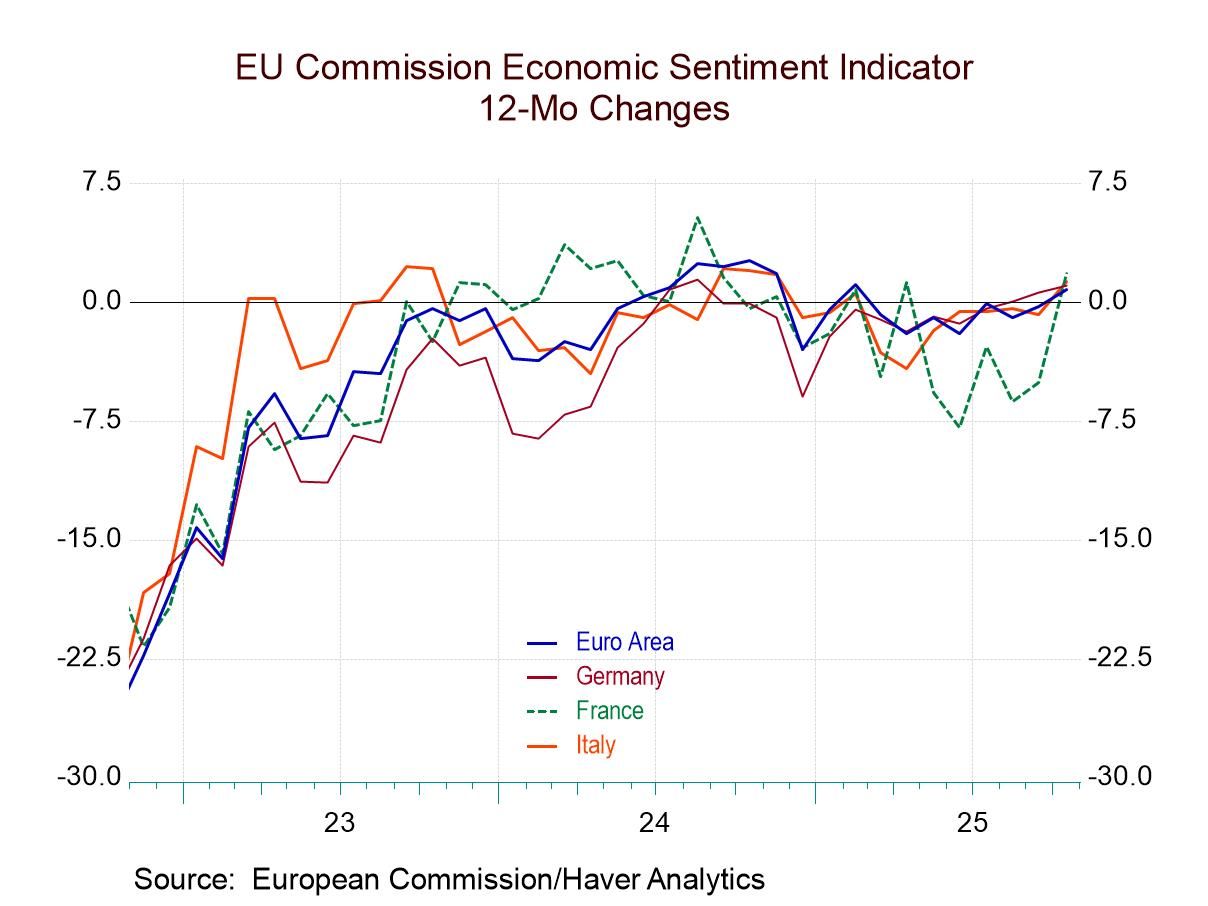 Global| Nov 28 2008
Global| Nov 28 2008U.S. Durable Goods Orders Lowest Since 2005
by:Tom Moeller
|in:Economy in Brief
Summary
October new orders for durable goods collapsed 6.2% m/m in what was the third consecutive monthly drop. During that period new orders virtually dried up as their 11.5% cumulative decline was the largest since the "credit crunch" [...]
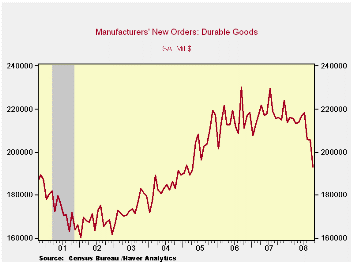
October new orders for durable goods collapsed 6.2% m/m in what was the third consecutive monthly drop. During that period new orders virtually dried up as their 11.5% cumulative decline was the largest since the "credit crunch" recession of 1980. Moreover, the level of new orders for durables last month was the lowest since April of 2005. The latest decline followed a revised 0.2% September downtick and a similar 5.5% August collapse. October's drop was roughly double the Consensus expectation for a 2.6% shortfall.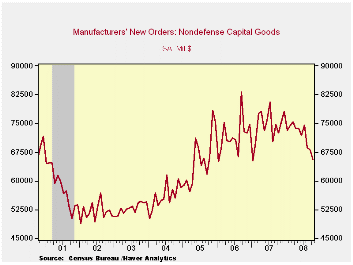
An 11.1% m/m decline in transportation sector orders (-21.6% y/y) led the drop in total durable goods orders last month. Orders for motor vehicles (-23.1% y/y) and for aircraft (-18.1% y/y) both fell sharply.
The industry detail further highlights the recent severe weakness in bookings. Orders for primary metals orders fell 12.6% last month and they're down 29.2% just since July. Machinery orders fell 6.8% last month and they are off 13.0% over the last three periods while October electrical equipment bookings fell 5.3%, off 9.4% during the last three months.
New orders for computers & electronic products also have fallen, but the decline has been not as severe. This total fell 2.4% last month and by 3.5% during the last three. Orders for just computers & related products were quite weak and posted a 5.5% October drop, off 7.2% since July. New orders for communications equipment, however, rose 7.7% last month though that just made up for earlier weakness and they're off 5.0% since July.
The capital equipment sector has shown severe weakness. Orders for nondefense capital goods fell by 3.6% last month and they were off by 12.0% since July. Without aircraft, orders were about as weak as the total and they fell 4.0% last month, off by 9.3% during the last three months. This was the sharpest negative growth since the 2001 recession. During the last ten years there has been an 80% correlation between the y/y gain in nondefense capital goods orders and the rise in equipment & software spending in the GDP accounts. The correlation of the GDP figure with capital goods shipments is, as one would expect, a larger 92%.
Reflecting past weakness in new orders, overall shipments of durable goods fell 2.4%. Their decline during the last three months totaled 6.7% after a 0.1% uptick last year. For comparison, industrial production of durable goods during the last three months fell 6.2%. During the last ten years there has been a 69% correlation between the three-month change in shipments of durable goods and the change in durables industrial production. Less transportation, shipments of durable goods fell 1.7% last month and by 5.4% during the last three months.
Monetary Policy and Asset Prices from the Federal Reserve Bank of San Francisco is available here.
| NAICS Classification (%) | October | September | August | Y/Y | 2007 | 2006 | 2005 |
|---|---|---|---|---|---|---|---|
| Durable Goods Orders | -6.2 | -0.2 | -5.5 | -10.6 | 1.4 | 6.2 | 10.2 |
| Excluding Transportation | -4.4 | -2.3 | -4.2 | -6.1 | -0.3 | 9.1 | 9.1 |
| Nondefense Capital Goods | -3.6 | -1.0 | -7.8 | -9.5 | 3.5 | 9.4 | 17.3 |
| Excluding Aircraft | -4.0 | -3.3 | -2.3 | -3.3 | -2.7 | 10.7 | 11.6 |
Tom Moeller
AuthorMore in Author Profile »Prior to joining Haver Analytics in 2000, Mr. Moeller worked as the Economist at Chancellor Capital Management from 1985 to 1999. There, he developed comprehensive economic forecasts and interpreted economic data for equity and fixed income portfolio managers. Also at Chancellor, Mr. Moeller worked as an equity analyst and was responsible for researching and rating companies in the economically sensitive automobile and housing industries for investment in Chancellor’s equity portfolio. Prior to joining Chancellor, Mr. Moeller was an Economist at Citibank from 1979 to 1984. He also analyzed pricing behavior in the metals industry for the Council on Wage and Price Stability in Washington, D.C. In 1999, Mr. Moeller received the award for most accurate forecast from the Forecasters' Club of New York. From 1990 to 1992 he was President of the New York Association for Business Economists. Mr. Moeller earned an M.B.A. in Finance from Fordham University, where he graduated in 1987. He holds a Bachelor of Arts in Economics from George Washington University.



